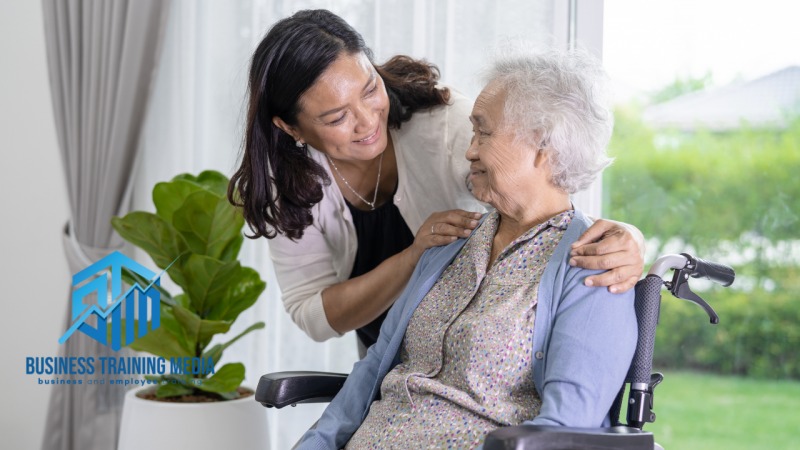
Caregiver Skills Training Checklists
This caregiver skills training checklist serves as a comprehensive guide for individuals seeking to develop the essential skills and knowledge required to provide effective and compassionate care to those in need. Whether you are a professional caregiver, a family member assuming caregiving responsibilities, or simply interested in expanding your caregiving capabilities, this checklist covers a wide range of crucial areas that will empower you to deliver exceptional care.
From communication skills to personal care, medication management to emotional support, this checklist aims to equip caregivers with the necessary tools and expertise to enhance the well-being and quality of life of care recipients. By following this checklist and undergoing the appropriate training, you can embark on a fulfilling journey of caregiving, making a positive impact on the lives of those entrusted to your care.
Here's a detailed caregiver skills training checklist that covers various aspects of caregiving:
1. Communication Skills:
- Active listening: Listening attentively and responding appropriately to the needs and concerns of the care recipient.
- Verbal communication: Using clear, simple language and speaking in a calm and reassuring tone.
- Non-verbal communication: Understanding and utilizing body language, facial expressions, and gestures to convey empathy and understanding.
- Effective questioning: Asking relevant and open-ended questions to gather information and assess the care recipient's needs.
2. Personal Care:
- Bathing and hygiene: Assisting with bathing, grooming, oral care, and maintaining personal hygiene.
- Dressing: Helping the care recipient to dress appropriately, considering their comfort and preferences.
- Toileting: Assisting with toileting needs, including using the toilet, managing incontinence, and maintaining cleanliness.
- Mobility: Assisting with transferring, walking, and using mobility aids such as walkers or wheelchairs.
- Medication Management:
- Medication administration: Following proper medication schedules, routes, and dosages as prescribed by healthcare professionals.
- Medication storage: Ensuring medications are stored securely and appropriately, adhering to specific storage instructions.
- Monitoring: Observing for any adverse reactions or side effects and promptly reporting them to the appropriate healthcare professionals.
3. Meal Preparation:
- Nutritional awareness: Understanding dietary restrictions, preferences, and special diets as prescribed by healthcare professionals.
- Meal planning: Creating balanced meal plans that meet the care recipient's nutritional needs and considering any cultural or religious dietary requirements.
- Food safety: Practicing proper food handling, storage, and preparation techniques to prevent foodborne illnesses.
4. Emotional Support:
- Empathy and compassion: Providing emotional support and understanding to the care recipient and their family.
- Active engagement: Encouraging social interaction, companionship, and meaningful activities to enhance the care recipient's well-being.
- Stress management: Recognizing signs of stress or emotional distress in the care recipient and implementing appropriate coping strategies.
5. Safety:
- Fall prevention: Identifying potential fall hazards and implementing preventive measures, such as removing clutter and installing grab bars.
- Emergency preparedness: Understanding emergency protocols, including knowing how to respond in case of accidents or medical emergencies.
- Home safety: Ensuring a safe environment by addressing issues such as proper lighting, electrical safety, and accessibility.
6. Record Keeping:
- Documentation: Maintaining accurate records of care provided, including medication administration, vital signs, and any changes in the care recipient's condition.
- Reporting: Effectively communicating with healthcare professionals, family members, and other members of the care team regarding the care recipient's progress or any concerns.
7. Self-Care:
- Time management: Balancing caregiving responsibilities with personal needs and obligations.
- Stress management: Implementing self-care strategies to reduce caregiver stress and prevent burnout.
- Seeking support: Knowing when to ask for help or seek additional resources, such as respite care or support groups.
Remember, this checklist serves as a general guide, and specific caregiving tasks may vary depending on the care recipient's needs and individual circumstances. It's important to receive formal training, consult healthcare professionals, and adapt the checklist to the specific caregiving situation.
Copyright 2023 - Business Training Media
Join Our Free HR Training Solutions eNewletter
Join our free HR Training Solutions eNewsletter today to stay up-to-date on the latest industry trends, training and development programs, best practices, and expert insights. Gain valuable knowledge, enhance your skills, improve your organization, build productive teams and elevate your career. Don't miss out on this invaluable resource – sign up now for our free HR Training Solutions eNewsletter!

Healthcare Facilities Safety Training Package
Business Training Media's ensure the safety and well-being of your healthcare facility's employees with our comprehensive six training video package. Dive into the intricacies of healthcare facilities' safetysafety practices, as our expert instructors guide your employees through essential training modules.




